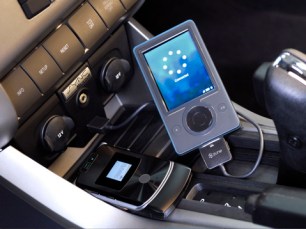 Anyone who has spent any time on roadways in the last several years has no doubt witnessed several near misses caused by drivers distracted by trying to use text messaging on their mobile phones or respond to email using a mobile device—and, unfortunately, many of us have also witnessed or been victims of outright accidents caused by “texting while driving.” Last July, New York Senator Charles Schumer and Congresswoman Carolyn McCarthy (both Democrats) introduced legislation that would ban texting and emailing while driving. Verizon Wireless quickly jumped on board, declaring their support for the plan, and now Ford Motor Company has became the first automaker to support a ban on driving while texting.
Anyone who has spent any time on roadways in the last several years has no doubt witnessed several near misses caused by drivers distracted by trying to use text messaging on their mobile phones or respond to email using a mobile device—and, unfortunately, many of us have also witnessed or been victims of outright accidents caused by “texting while driving.” Last July, New York Senator Charles Schumer and Congresswoman Carolyn McCarthy (both Democrats) introduced legislation that would ban texting and emailing while driving. Verizon Wireless quickly jumped on board, declaring their support for the plan, and now Ford Motor Company has became the first automaker to support a ban on driving while texting.
“Ford supports a ban on hand-held text messaging while driving—and we endorse the legislation introduced by Senator Charles E. Schumer and Rep. Carolyn McCarthy that would encourage a more rapid transition to hands-free and voice activated technologies,” said Ford’s group VP for sustainability, environment, and safety engineering Sue Cischke, in a statement. “This legislative approach addresses a nationwide problem we can all agree is necessary to improve safety.”
A recent study from the Virginia Tech Transportation Institute count that texting using a mobile phone keypad puts a driver at a 23 times greater risk of a crash than a driver who isn’t texting.
Ford also used the opportunity of endorsing a ban on driving while texting to promote its own in-car Sync technology—powered by Microsoft, of course—that enables users to have text messages read to them, as well as operate their cell phones using voice commands. Although the Sync system does arguably create as much distraction for a driver as using a phone, the hands-free nature of the technology at least keeps their hands on the wheel.
No other automakers have announced support for a ban on driving while texting; similarly, Verizon Wireless remains the only mobile operator supporting the legislation.


